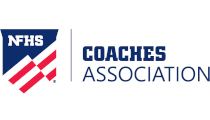Overnight trips are great experiences that expand the usual geographical limits of high school competition, build lasting memories and enhance team bonds. On the other hand, when teams embark on trips with little planning, such events can become traumatic experiences for players, coaches and community members. Here are some ideas to ensure the success of overnight events.
In nearly every venture, the first step to achieve success is to properly plan. Overnight trips cannot be scheduled haphazardly with little attention to school and district deadlines. Some districts have requirements that need to be met well before the scheduled date. Plan to get permission at least two months in advance.
Coaches may have to attend school board meetings to answer any questions. A presentation for the local school board is a great way to showcase student achievements, especially when coaches involve students by having them present. Students should dress professionally and be able to verbalize the importance such a trip has for their personal, social and academic development. Be sure to check with site and district administration to ensure that you are following proper policies.
Once permission has been secured, travel and housing needs to be arranged. Will traveling athletes stay with host families or will traveling teams stay in hotels? Again, this decision will need to be cleared with school administration; however, proper planning with attention to detail will make for a better experience. In the case of hotels, athletes typically can be housed comfortably with three to a room. Some hotels may have restrictions regarding the maximum occupancy, but these can be verified with a visit to the hotel website or a phone call.
Naturally, athletes will be excited to be part of such an activity, but safety needs to be of the highest priority. Preparing proper supervision is a necessity. Each district may set varying ratios regarding student to adult chaperone; however, setting a schedule as simple as what time the lights are out can save coaches from facing unexpected stress. In addition, all athletes should have an emergency phone number for the coach in case students experience an unexpected room or family emergency.
To ensure that athletes stay in their rooms and are not roaming the hallways, some coaches use a small piece of tape to connect the door to the door jamb. A break in the tape lets the coach know curfew has been broken. In addition, it is equally important for coaches to discuss the purpose of curfews to not only ensure team safety, but to make sure athletes are properly rested for competitions the next day. Such clarification can bring focus to teams and minimize distractions.
If traveling teams are staying with host families, visiting teammates should be grouped with a minimum of two teammates per host site. This will increase comfort of visiting teams and increase the likelihood that teammates will follow school rules – if a teammate is watching, the temptation to veer away from established rules becomes lessened. In addition, visiting coaches need to get emergency contact information from each host family listing addresses and phone numbers. If a family or school emergency happens in the middle of the night, the coach needs to be able to find players with expediency.
There are many obstacles that may arise in the course of an overnight trip, but proper planning of such events can lead to a more successful experience. Such activities can help our athletes learn how to behave in social settings, set the stage for future success and create memories that can last a lifetime.
Steve Amaro
Steve Amaro has been a USPTA certified tennis coach, athletic director (CMAA), and English teacher at Freedom High School in Oakley, California, for the past 13 years. He recently received his Ph.D. in Educational Leadership from St. Mary’s College in Moraga, California. A current member of the NFHS Coaches Publications Committee and the NIAAA Accreditation Committees, he is also the president of the North Coast Section Athletic Directors Association, a member of the California Interscholastic Federation (CIF) Athletic Administrator Advisory Committee, a representative at the section level of the California Coaches Association (CCA) and an NIAAA LTI instructor at the state level.
Most Recent Articles
- nfhs news NFHS Learning Center Delivers 25 Millionth Course
- Track & Field/Cross Country article Effective Communication with Athletes and Coaches
- nfhs news Player Equipment Changes Highlight 2025 High School Football Rules Revisions
- Player Equipment Changes Highlight 2025 High School Football Rules Revisions
- nfhs news Judgment Call on Second Contact Eliminated in High School Volleyball






